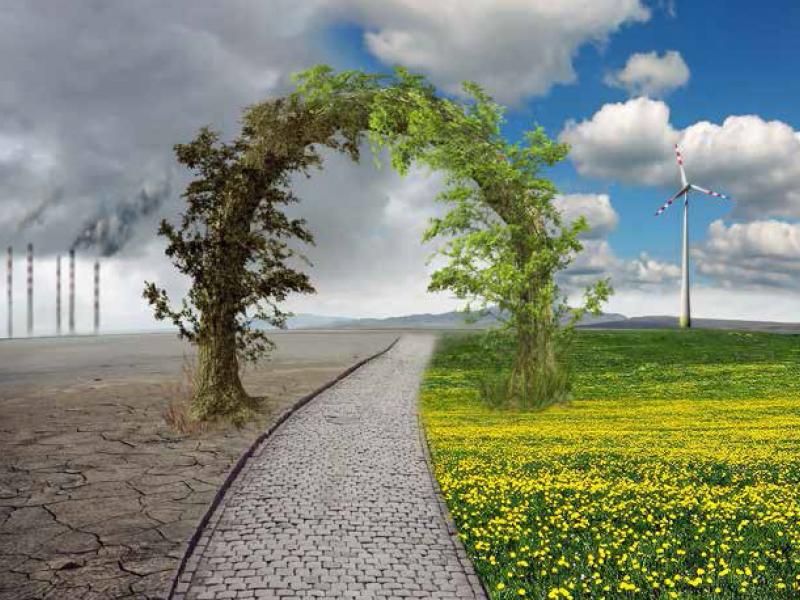Kategori : ENERGY AGENDA NEWS, ENERGY EFFICIENCY NEWS - Tarih : 23 June 2021
According to a new analysis from the findings of the International Institute for Sustainable Development, 12 percent of the public finance provided by the G20 and Multilateral Development Banks for natural gas projects in developing countries between 2017-19 was released by Urgevald in October, from the World Bank. Since the adoption of the Paris Agreement, World Bank Group financing for fossil fuel projects has exceeded $12 billion in more than 30 countries.
Experts from Turkey and around the world state that the new action plan does not meet expectations:
Bengisu Özenç, Director of the Sustainable Economics and Finance Research Association (SEFIA), said, “Combating climate change is an area so urgent that we cannot postpone it to the medium term. This  struggle requires a radical change in the current system in all areas. This transformation includes the financial sector. The transformative power of international finance comes to the fore especially in countries with a savings deficit such as Turkey, and plays an important role in shaping their investments. In this period, when a certain acceleration is achieved in financial flows, the World Bank’s strengthening this momentum with clearer targets and consistent measures will support Turkey’s transition to an action plan in line with the Paris Agreement targets.”
struggle requires a radical change in the current system in all areas. This transformation includes the financial sector. The transformative power of international finance comes to the fore especially in countries with a savings deficit such as Turkey, and plays an important role in shaping their investments. In this period, when a certain acceleration is achieved in financial flows, the World Bank’s strengthening this momentum with clearer targets and consistent measures will support Turkey’s transition to an action plan in line with the Paris Agreement targets.”
Luisa Galvao, International Policy Campaigner at Friends of the Earth USA, said, “The World Bank Group’s selective approach to fossil fuel phasing is as effective as pouring water and gasoline on a fire at the same time. The fact that it points to very distant dates regarding compliance with the Paris Agreement makes this Plan unsuccessful on both scientific and fair scales. The Climate Change Action Plan makes the countries and communities that the World Bank Group is bound to support depend on infrastructure and idle assets that cannot be used due to increasingly expensive and volatile energy prices. “It will also cause disease, facing the risks and harms of fossil fuel use, displacement of people and a belated, unjust transformation.”
Kate Geary, Co-Director of the Recourse campaign group, said: “Recourse has repeatedly exposed IFC’s ties to fossil fuel projects through financial intermediaries, including coal, oil and gas. IFC’s refusal to elaborate a timeline and detail targets for cleaning up the portfolio of financial investments that account for more than half of its business is inexcusable. “Time is running out for meaningful climate action and IFC needs to lead rather than wait for collective action.”
Urgewald Senior Advisor Heike Mainhardt said, “The World Bank should stop pushing policy reforms that make fossil fuels profitable. Policy reforms, including the World Bank’s tax cuts and higher energy tariffs, are driving fossil fuel investments around the world. “If the Action Plan does not address fossil fuel investment incentives as part of the Bank’s policy-based loans, it is not a meaningful plan to address climate change.” “Furthermore, the Action Plan’s climate commitment to raise ‘climate finance’ to an average of 35% of the World Bank Group’s finances is a bogus climate commitment. The bank is not transparent about what counts as ‘climate finance,’ and does not use this commitment as policy-based loans. Unallocated budget support does not need to be directed to any specific climate expenditures and because the Bank refuses to put fossil fuels on the Excluded Expenditures list, this fund does not cover any fossil fuel expenditures, including coal. available for.”
Bronwen Tucker, Research Analyst at Oil Change International, said: “The World Bank Group first committed to aligning its financing with the Paris Agreement in 2017, and we are still waiting for that to happen in 2021. The new CCAP is consistently large-scale with not very clear language on how to review it. It leaves the door open for gas support. Development policy financing brings no additional commitments on how to end the Bank’s effective and hard-to-track support for oil, gas and coal through relevant facilities and financial intermediaries. A fair green recovery and fossil fuels for workers and communities “This public money is urgently needed to support a just transition from fuels.”
Jon Sward, UK Environment Project Manager at Bretton Woods Project, said: “The World Bank’s new Climate Change Action Plan identifies key sectors that require urgent transformation to prevent catastrophic climate change, but commit to a bold new World Bank agenda to help make that transformation far from. In the energy sector, the Bank gradually ceases its support for fossil fuels, starting with rapidly reducing investments in natural gas in all aspects of its loan portfolio.





